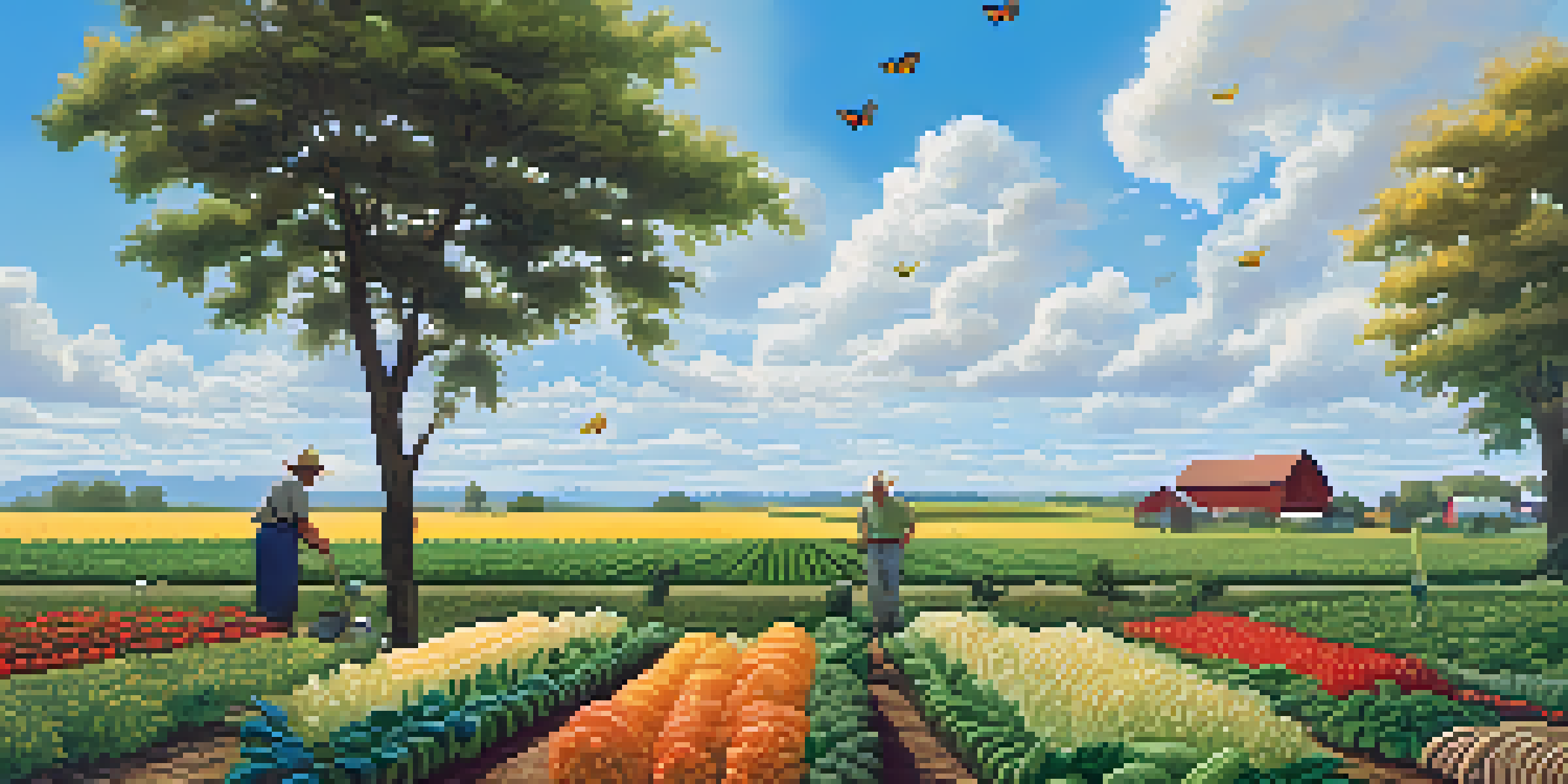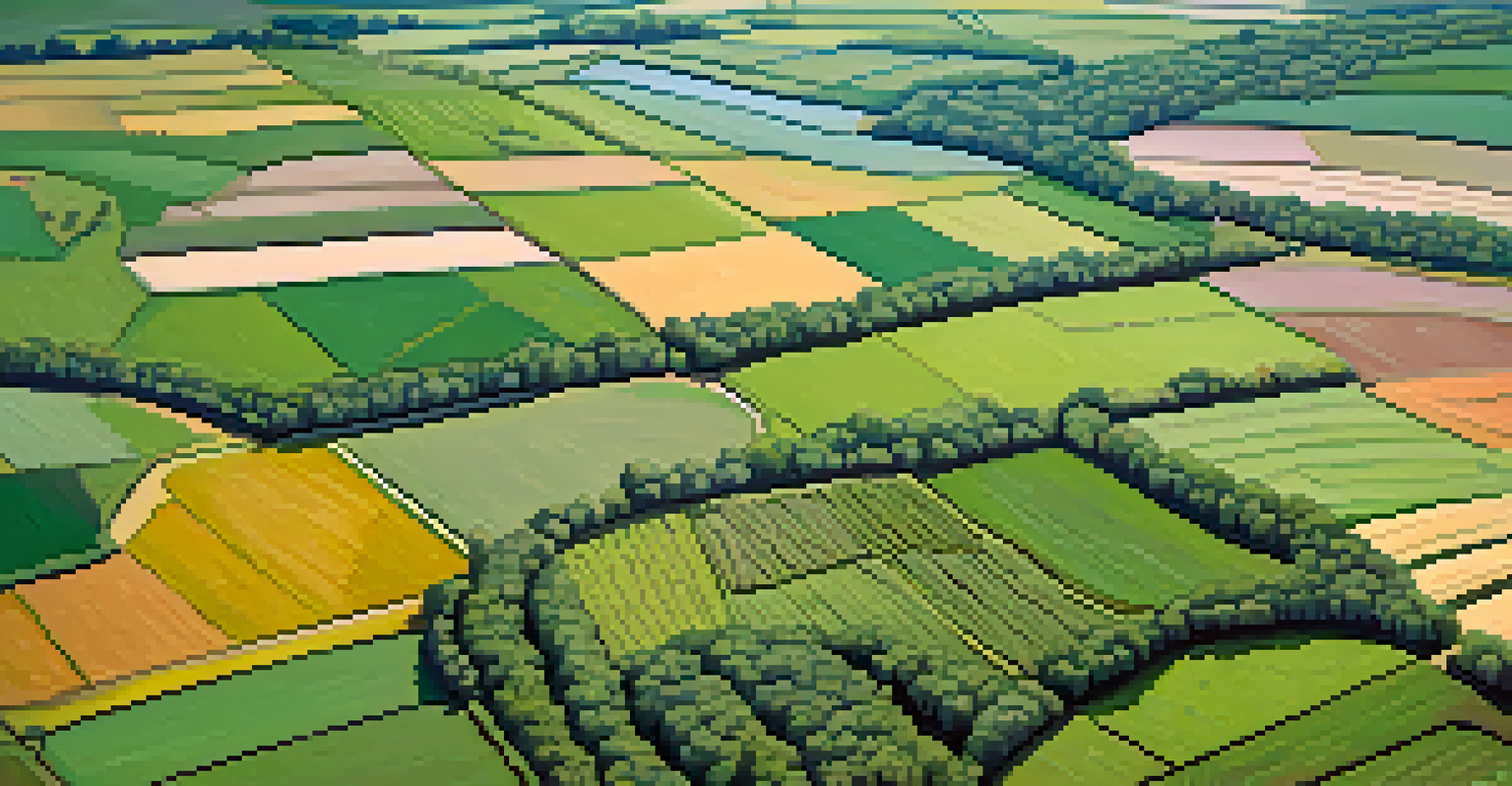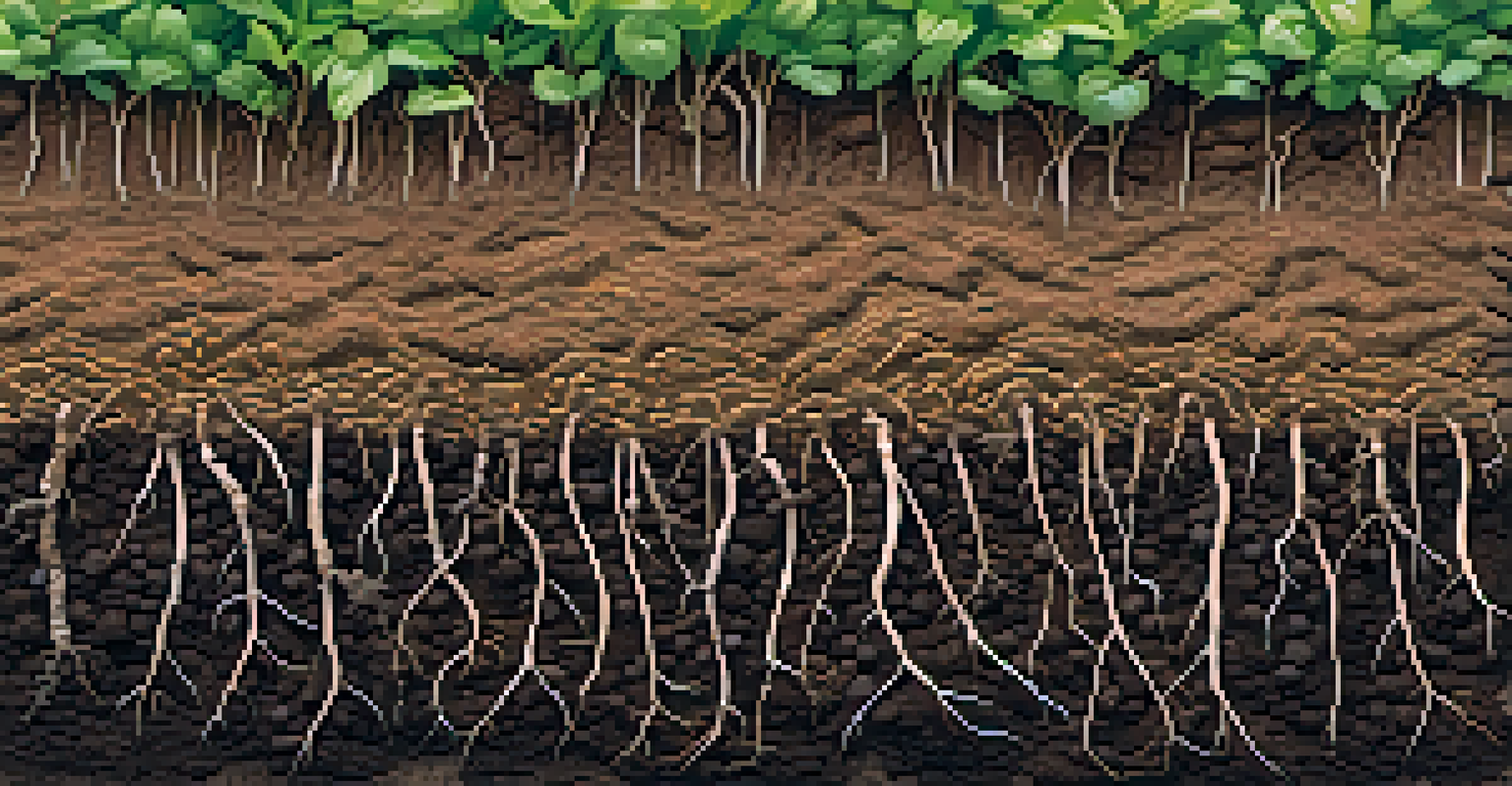Sustainable Agriculture: The Vegan Approach Explained

What is Sustainable Agriculture and Why It Matters
Sustainable agriculture is a farming method that focuses on producing food in a way that meets current needs without compromising future generations. It prioritizes practices that are environmentally friendly, economically viable, and socially responsible. The importance of sustainable agriculture shines through as we face challenges like climate change, soil degradation, and food insecurity.
Sustainable agriculture is a way of farming that meets society's present food needs without compromising the ability of future generations to meet their own food needs.
By emphasizing long-term ecological balance, sustainable agriculture aims to protect our planet’s resources. This approach not only benefits farmers and consumers but also nurtures the environment. It’s about creating a system that produces food while preserving natural ecosystems.
As we delve deeper into sustainable practices, it becomes clear that adopting a vegan approach can significantly enhance these efforts. Veganism promotes plant-based diets, which require fewer resources, thus reducing the overall ecological footprint.
The Vegan Approach to Agriculture: Basics and Benefits
At its core, the vegan approach to agriculture focuses on cultivating plants and crops without the use of animal products or byproducts. This includes avoiding meat, dairy, and eggs in farming practices, which can contribute to higher greenhouse gas emissions and resource depletion. By eliminating these components, vegan agriculture promotes a more sustainable food system.

One of the primary benefits of the vegan approach is its lower environmental impact. Plant-based farming typically uses less water and land compared to animal farming, making it a more resource-efficient option. Additionally, crops grown for direct human consumption can provide more calories and nutrients per acre than those used to raise livestock.
Sustainable agriculture protects the future
This farming method meets current needs while ensuring ecological balance for future generations.
Moreover, embracing a vegan approach encourages biodiversity by allowing farmers to cultivate a wide variety of plants. This diversity helps build resilient ecosystems, which can better withstand pests and diseases, ultimately leading to more robust food production.
Soil Health: A Key Component of Sustainable Vegan Farming
Healthy soil is the foundation of successful agriculture, including the vegan approach. Sustainable practices enhance soil health through techniques like crop rotation, cover cropping, and organic composting. By enriching the soil with nutrients, farmers can grow healthier plants that are better equipped to thrive.
The future of food is plant-based, and it’s not just about health; it’s about sustainability and preserving our planet.
When soil health is prioritized, it leads to improved water retention and reduced erosion. This is particularly important in the context of climate change, where extreme weather events are becoming more common. Sustainable vegan farming practices help to create a more resilient agricultural system that can adapt to these changes.
Additionally, healthy soil supports a diverse range of microorganisms that contribute to plant growth. By avoiding synthetic fertilizers and pesticides, vegan farmers promote an ecosystem that nurtures both crops and beneficial organisms, leading to a more sustainable agricultural cycle.
Water Conservation: An Essential Element of Vegan Agriculture
Water is a precious resource, and its conservation is vital in sustainable agriculture. The vegan approach often utilizes methods that require less water than traditional animal farming. For instance, growing crops for human consumption generally uses significantly less water compared to raising livestock.
Incorporating techniques like drip irrigation and rainwater harvesting can further enhance water efficiency in vegan farming. These practices help ensure that water is used judiciously, reducing waste and promoting sustainability. This is particularly important in regions facing water scarcity.
Vegan practices lower environmental impact
By focusing on plant-based farming, vegan agriculture reduces greenhouse gas emissions and resource usage.
Moreover, healthy, well-managed soil retains moisture better, minimizing the need for excessive irrigation. This synergy between soil health and water conservation is a hallmark of sustainable vegan agricultural practices, helping farmers adapt to changing climatic conditions.
The Role of Crop Diversity in Sustainable Vegan Practices
Crop diversity is a fundamental aspect of sustainable vegan agriculture. By cultivating a variety of plants, farmers can enhance soil health, reduce pest outbreaks, and improve overall productivity. This practice not only supports the ecosystem but also provides a more varied diet for consumers.
Planting diverse crops can mitigate the risks associated with monoculture, where a single crop is grown extensively. Monocultures can lead to soil depletion and increased vulnerability to pests and diseases. In contrast, diverse cropping systems promote resilience and sustainability.
Furthermore, crop rotation and intercropping can help improve nutrient cycling, as different plants have unique nutrient requirements and contributions. This holistic approach aligns perfectly with the principles of sustainable agriculture, fostering a healthier environment for all.
Reducing Greenhouse Gas Emissions Through Vegan Practices
One significant advantage of the vegan approach to agriculture is its potential to reduce greenhouse gas emissions. Animal farming is a major contributor to emissions, accounting for a substantial portion of methane and nitrous oxide released into the atmosphere. By shifting toward plant-based farming, we can significantly lower these emissions.
Vegan agriculture not only eliminates the emissions associated with raising livestock but also encourages practices that sequester carbon in the soil. Techniques like agroforestry and cover cropping can enhance soil’s ability to capture carbon, helping to combat climate change.
Crop diversity fosters resilience
Cultivating a variety of plants enhances soil health and boosts productivity while mitigating risks associated with monoculture.
As we become more aware of our environmental impact, adopting vegan agricultural practices presents an opportunity to contribute positively to the planet’s health. It’s a powerful step toward creating a more sustainable future for generations to come.
Challenges and Solutions in Sustainable Vegan Agriculture
While the vegan approach to sustainable agriculture offers numerous benefits, it’s not without its challenges. Issues such as pest management, crop yields, and market access can pose significant hurdles for farmers. However, innovative solutions are emerging to address these concerns.
For instance, integrated pest management (IPM) combines various strategies to control pests while minimizing environmental impact. This approach enables farmers to maintain healthy crops without relying heavily on chemicals. Additionally, community-supported agriculture (CSA) models can help connect consumers directly with local farmers, improving market access.

Collaboration and knowledge-sharing among farmers can also lead to the development of best practices that enhance the sustainability of vegan agriculture. By fostering community ties and supporting one another, farmers can overcome obstacles and thrive in a sustainable agricultural landscape.
The Future of Sustainable Agriculture: A Vegan Vision
Looking ahead, the future of sustainable agriculture is closely intertwined with the vegan approach. As more consumers become aware of the environmental impact of their food choices, the demand for plant-based products continues to rise. This shift presents a unique opportunity for farmers to adopt sustainable practices that align with consumer preferences.
Innovations in technology and farming techniques can further enhance the viability of vegan agriculture. From precision farming to vertical gardens, advancements are paving the way for more efficient and sustainable food production methods. These innovations can help meet the growing global demand for food while preserving our planet’s resources.
Ultimately, the vision for sustainable agriculture is one where vegan practices play a pivotal role in creating a healthier, more resilient food system. By embracing this approach, we can work toward a future where food is produced in harmony with the environment, benefiting both people and the planet.